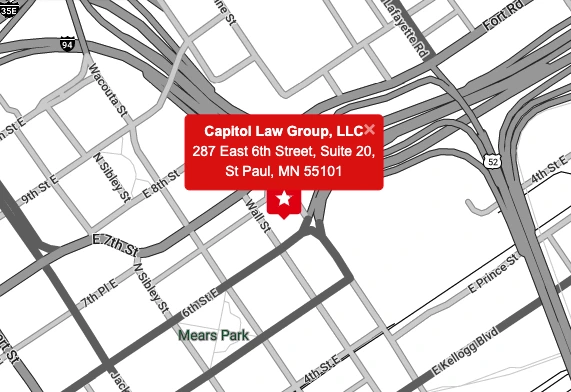A St. Paul Criminal Defense Lawyer Talks About Police Searches and Court Supervision

In a previous post, we mentioned that people who are on probation or parole may be subject to warrantless searches, in some cases. We received so many calls about this point that we decided a follow-up post would be a good idea. So, here we go.
Typically, if you are found guilty, or if you plead guilty, in a criminal case, that sentence involves court supervision. Most of these arrangements include probation. Furthermore, in most jail and prison sentence situations, the defendant serves two-thirds of the period behind bars, and the final third is supervised release. For the most part, there is no traditional “parole” in Minnesota.
Court supervision always comes with conditions, and many times, these conditions include a blanket consent to a warrantless search. So, it’s important that a St. Paul criminal defense lawyer stands up for your rights in these cases. If the conditions are too restrictive, supervised release resembles house arrest.
Why does Supervised Release Include So Many Conditions?
Probation and parole serve two basic functions. They punish offenders and protect the public. So, all supervised release conditions support one of these two goals.
Restricting the defendant’s freedom of movement is a good example of a penal condition. The same thing applies to paying fines, avoiding further trouble with the law, and regular in-person reporting to a court supervision officer.
Many other conditions protect the public. The Ignition Interlock Device requirement in many DWI probations is a good illustration. IIDs are essentially Breathalyzers which are attached to the vehicle’s ignition. These gadgets disable the ignition if the defendant’s BAC level is above a certain level. Additionally, while the vehicle is in motion, the driver must submit periodic breath samples. If the device registers too many rolling refusals, or a rolling failure, the vehicle will not re-start.
The warrantless search condition, if it applies, falls into this second category as well. A major difference between IIDs and warrantless searches is that defendants do not have a constitutional right to dive. But they do have a constitutional right to be free of warrantless searches. So, a St. Paul criminal defense attorney has considerable latitude with regard to search warrant conditions. Mor eon that below.
What does the Law Say About Supervised Release and Warrantless Searches?
The answer to this question begins with a deeper dive into State v. Kouba, the 2006 case cited in the previous blog. This Court of Appeals case involves some complex factual and legal issues.
Kouba pleaded guilty to fifth-degree criminal sexual assault of a minor. His sentence included two years of probation. Some notable conditions included “abide by state and federal laws, be truthful with his probation officer, submit to searches of his person and residence, refrain from contacting the victim, complete sex-offender treatment and all aftercare, and have no unsupervised contact with minors.”
On February 9, 2004, one day before Kouba’s probation expired, the court extended it for a year. A week after the hearing, Kouba told a BCA polygraph agent that he had incriminating and illegal materials in his home. The BCA officer informed Kouba’s probation officer, who then met with Kouba about this information. During their meeting, Kouba may have consented to a search. At any rate, officers seized various pornographic videotapes and other materials from Kouba’s house.
To uphold the warrantless search condition, the Court relied on 1999’s State v. Taylor. That decision held that warrantless searches of a resident are always illegal unless the state shows consent or probable cause and exigent circumstances.
In other words, Kouba’s consent, or at least his admission, probably upheld the controversial warrantless search condition. Because of this special condition, the Kouba decision is not as solid as it may appear.
How can a St. Paul Criminal Defense Lawyer Protect My Rights in These Situations?
When it comes to probation conditions, almost everything is negotiable. Based on the uncertainty regarding Kouba’s decision, a St. Paul criminal defense lawyer has an opportunity to at least modify the common warrantless search condition.
As mentioned, people have a constitutional right to be free from warrantless searches. True, convicted felons lose some of their constitutional rights, such as the right to vote. But these waivers only apply in certain cases, and they definitely do not apply to misdemeanor convictions.
There are practical arguments as well. Most criminal matters involve a substantive or procedural defense. If that’s the case, a St. Paul criminal defense lawyer can leverage that defense to obtain softer supervised release conditions.
Count on a Solid Attorney
Regardless of what the court papers say, probationers are not always subject to warrantless searches. For a free consultation with an experienced St. Paul criminal defense lawyer, contact Capitol City Law Group, LLC. Go online now, call us at 651-705-8580, or stop by 287 6th St E, Suite 20, St Paul, MN 55101.




